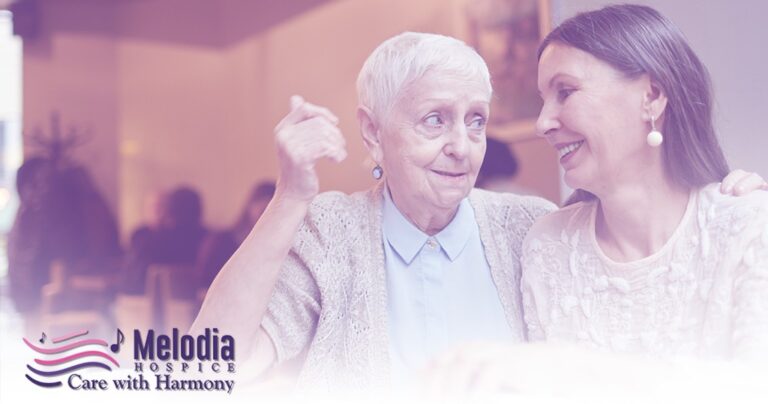Bereavement Support In Martinez City, California
A visit to a funeral home is often the only up-close experience modern people have with death, where bodies are dressed up to hide pallid cheeks and other signs of lifelessness from view. Many people are clumsy and uncertain about how to respond to the messiness of death and dying and in particular the grief that losses bring upon the bereaved because of the lack of regular interaction with dying processes (a bereaved person is one who has suffered the death of a loved one). People often find themselves at a loss for words or actions when confronted with someone who is grieving. As a result, well-meaning gestures and platitudes are more often than not ineffective in providing comfort to those who have suffered a loss. Because of its heartbreaking and complicated nature, death is a terrible business. Flowers and poetic words aren’t the only ways to provide life, light, and healing to those who are grieving
What Is Grief?

When we lose a loved one, we feel the pain of grief. Many people experience a wide range of emotions when they lose a close friend or family member to death. Grief and loss are not the same for everyone, but there are some common symptoms to look out for.
Loneliness and despair are common feelings for many people. People who are depressed may cry a lot, be blue, or have sudden mood shifts. People who have lost a loved one may also become enraged. Anger may be directed at the medical staff who provided the diagnosis and treatment options, or at other caregivers who may be perceived as not doing enough to save lives.
People who have lost a loved one may even become enraged at the deceased for abandoning them. There are many things that grieving people wish they had done differently that could have saved their loved one’s life, as well as things they wish had happened differently. Bereaved people may even feel guilty for expressing relief that their loved one’s suffering had come to an end after a long period of illness.
It’s possible that some people will experience death with a sense of shock, finding it difficult or impossible to accept the fact that a loved one is no longer here. The expectation that a loved one will appear at the door or pick up the phone when they are shocked can lead to frustration and confusion. In no way can you call this “crazy.” This is a side effect of living with another person and becoming accustomed to certain patterns of behavior. Bereaved people may feel as if their lives have taken an unexpected and perplexing turn. Those who have suffered a loss may find themselves weak and unable to eat for days or weeks after the event. They may be in pain or have difficulty sleeping.
Finding Help

First and foremost, one must have a support system in place to effectively deal with grief. Your closest friends and family members are the most obvious places to start when looking for ways to connect with others. Look for people who may not be able to express their emotions, but who yet demonstrate that they care about the problem. Seek out those with whom you can open up and share your feelings without fear of being judged. People who are able and willing to listen deeply to your recollections of the deceased are the best people to share them with. Grieving people will find it easier to cope if they have more opportunities to communicate about their loss and their loved one, regardless of whether they take advantage of those opportunities.
Support Groups

Joining a support group might be helpful for those who are grieving. Many hospices, hospitals, and community centers provide a safe space for people who are going through similar things to get together and talk about their feelings and experiences. Support groups may also be able to connect grieving individuals with counsellors, therapists, and other resources to help them cope with the pain and significant obstacles of loss.
Faith Based Support

A spiritual connection may also be helpful in alleviating stress. Grieving people can find comfort in religious rituals, meditations and prayers offered by churches and other religious organizations. It’s also possible to get help with some of the larger questions that may arise in the wake of loss, such as the meaning of life, the afterlife, and finding or rediscovering hope and vitality through faith-based groups and their leaders (clergy).
Be Honest About Feelings

A person’s complicated and unpleasant sentiments could actually make grieving more challenging. As you become adjusted to your new routine, you’ll be able to express your sorrow in more open and honest ways, which will help you cope with your loss. Seek out trusted confidants, such as members of your family and close friends, as well as clergy, therapists, and other members of your faith community. To commemorate the life of a loved one, record your thoughts in a journal or create a photo and scrapbook of your favorite memories. Honor the memory of a loved one by getting involved in an organization or activity that they deemed important and life-giving.
Look Out For Your Health

For help if you are feeling ill or exhausted or if you are experiencing mood swings or depression, see a doctor. Experiencing the tumultuous aftermath of a loss may necessitate additional medical or psychological assistance. In addition to sound medical advice, doctors and other health care providers can help you find other resources, such as exercise programs, medication, therapy, or other specialists, if that is what you need.
Seek Out Individual Support

Seek out people who don’t tell you to be strong, but instead find ways to help you grow stronger. These are people who pay attention to how you’re feeling, are there for you no matter what, and find ways to help support you even if you didn’t know to ask. A place where you can share your memories of your deceased loved one with others who are eager to do the same. People who care about you bring you food and may even offer to take you out or stay with you if you choose – and they don’t mind if you decline – but they respect your choice. Clichés and platitudes are not used by helpful people, and they do not tell you how you should or should not feel at any given moment in their conversation. As a substitute, they pay attention and show how much they care. If you’re assisting someone who is grieving, please see our page on grieving support for more information.
Knowing How Palliative And Hospice Care Works

In hospice care, the patient’s health and quality of life are the primary concerns. As a result, a patient with a life-limiting illness may receive assistance from a hospice care team in terms of their emotional, physical, social, and spiritual needs. The fact that hospice and palliative care are available to people of any age is critical information. If you or a loved one is nearing the end of their life, you may qualify for hospice care.
Benefits Of Hospice Services

There are many benefits to hospice care, not just for the patient, but for the loved ones who want to provide the best possible care for a loved one. Patients and their families alike can benefit greatly from hospice care, which provides a wide range of support services to help patients and their families cope with the end-of-life process. It also provides a respite from the situation for the family members involved.
Various aspects of a patient’s experience are addressed by hospice care. The hospice care team may include a variety of professionals, such as a case manager, the patient’s primary care physician, a hospice doctor, nurses, dieticians, counsellors and social workers.
The hospice team works together to design a care plan that is tailored to the patient’s specific needs for symptom relief and pain management. It’s also important to note that the hospice care team can provide medical supplies, therapies, medications, and equipment. Hospice care can often be delivered in the patient’s own home, which can be a great relief for those who don’t want to waste their time in the hospital on treatments that aren’t necessary or effective.
Hospice workers will visit the patient on a regular basis to see if additional services and care are required. There are a variety of supplemental services that may be offered, such as physical and speech therapy as well as nutritional guidance and massages. A certified home health aide may also be employed in conjunction with the hospice care team to help with personal care tasks like bathing. Patients and their loved one’s benefit from hospice care because of the availability of caregivers around the clock in the event of an emergency.
The Advantages Of Palliative And Hospice Care

Hospice care providers are essential in the final stages of a patient’s life because they provide support, practical knowledge, and experience. In addition to easing the suffering of the patient and their loved ones, hospice care can also ease the burden on the patient’s loved ones. More opportunities for family members to interact with their loved one and a degree of tolerance are preserved as a result.
Patients who have been diagnosed with a life-threatening illness may already be mentally or physically compromised. To avoid the risks of being overtreated by a hospital or other medical facility, they may elect to receive hospice care on their own. Families caring for a loved one who is facing a life-limiting illness can benefit from hospice programmes that offer education and assistance. Patients who have been diagnosed with a life-limiting illness may feel like they are already a burden to their loved ones, and hospice can help alleviate these feelings.
There are many misconceptions about palliative care and hospice, and unfortunately, these misconceptions are widespread. There are many misconceptions about hospice care, including that it is only available for a few months, and that it is only available to those with terminal illnesses. Hospice care is available to anyone with a life-limiting illness as long as they need it. Even if the patient has passed the six-month mark, they are still eligible for hospice care as long as the prognosis is six months or less.
Contact Melodia Care Hospice Today

Hospice centers provide a wealth of written resources on coping with grief and other relevant issues available to their patients. During a time of loss, hospice can connect you with people and other resources to help you cope with the flood of emotions and experiences that many people go through. If you have experienced a death and are currently grieving, hospice can connect you with people and other resources to help you cope. Melodia Care Hospice can provide you with more information about living with grief after the death of a loved one. You can reach us by phone or by sending us an online message for a free and confidential consultation.
You can reach us at any time by contacting us through our 24/7 online customer support chat or by calling 1-888 635-6347 (MELODI-7) Melodia Care Hospice.
